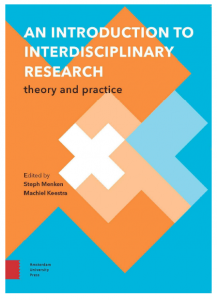Current problems
The ubiquitous and growing use of modern electronics seems to have established itself as a remarkable valuable and convenient tool. At the centre are Printed Circuit Boards (PCBs) that perform all necessary processing tasks. The production and especially recycling process of these PCBs is a diverse and complex process, where the sustainability of the system as a whole is increasingly questioned. We at Fair-Fusion think that we should change this, the sooner, the better.
To solve these problems, we are developing an 8-bit computer (micro)chip that is directly recyclable and completely biodegradable. Using a bio-based approach we attempt to bridge the gap between silicon-based chips and living organic computing. For this reason alone we form our team by biologists, chemists, physicists, engineers and combine them with members from fields of economics, psychology, anthropology and sociology.
The lack of PCB recycling is our key example of today’s sustainability issues. They are simply too complex to be addressed by a sole discipline. Therefore, they require an understanding of a system from multiple points of view. This means applying the practices from the natural and social sciences, as well as the humanities. With this knowledge and skills, we develop interdisciplinary solutions that aid our mission.
What we do
We share the knowledge and insights that we harvest in our laboratory within the EU community directly and indirectly. We write publications and actively sustain the incorporation of knowledge into products and services. This means that we may help EU-based organisations to innovate and allow students to learn about (developing) cutting-edge technology. To realize our objective we study literature, interview stakeholders, develop materials, chemically analyse materials, develop mechanical and electrical systems, write software, design prototypes, breed and cultivate micro-organisms.
Secondly, with upcoming online videos and podcasts, we take an active role in educating those who might consider themselves to be lifelong learners. Please, feel free to check out our recommended videos and recommended scientific articles in the meantime.
Our philosophy on science
Interdisciplinary
For more information on what interdisciplinary means, you can read the little book An Introduction to Interdisciplinary Research, which is available as hard copy or e-book. Otherwise, the Wikipedia page remains available.
As Fair-Fusion is developing a new scientific model that also features the recommendations of Munafò et. all. (2017) you will start by writing together with your colleagues a research proposal. They suggest that the article should be published (and/or submitted for grading in universities) whatever the results may be. Example: First peer proposal your research – let it be reviewed and corrected by others -, then after you start with experimentation and analysis. The main benefit of this process is that you can read articles even though they might contain unwanted results, to due interests. This provides the scientific community with a less biased view of what the facts are in their field. Secondly, it may also improve the quality of the research as it now becomes more important to publish the most relevant data instead of the data that is accompanied by the highest level of certainty, which is not always is the most interesting information.
Social Entrepreneurship of Fair-Fusion
What is the difference between Social Entrepreneurship and Corporate Social Responsibility?
Corporate Social Responsibility (CSR) delivers a lot of great initiatives, but it is a reactive process. CSR is taking responsibility for the effects that you as an organisation have on the environment. Well-known examples of CSR are energy-saving strategies or fair-trade purchasing. The difference between Social Entrepreneurship is therefore the difference between reactive and proactive entrepreneurship. A social entrepreneur organizes his core business in such a way that he or she creates social progress, while a socially responsible entrepreneur tries to carry out his core business in a responsible manner. CSR promotes, integrates and works on social entrepreneurship. Do you want to know how we do this? Then read this paper on: Social Innovation and Social Entrepreneurship: A Systematic Review
Independent
Fair-Fusion is a fully independent research institute i.e. we tend to fund research mainly using our own funds and decide on themes that we think are most wise to address. Our collaboration with other institutes and universities improve the quality of our research and provide vital inspiration and educational opportunities for students. If you are a little unsure what the importance is of intellectual independence and responsibilities related to academia please, have a look at Prof. Tony Judt’s lecture on “Disturbing the Peace Intellectuals and Universities in an Illiberal Age”
Our active role in societies
- Contribute to independent research with our very own laboratory
- Provide free education with classes and upcoming podcasts
- Defend truth in the public space with future online videos
- Challenge the intellectual peace in universities with seminars and lectures
Logo
 The logo of Fair-Fusion embodies in various ways what the institute is about. The two leaves stand for the biological aspects of the organisation. The vital ecosystem functions Fair-Fusion aims to preserve and secondly the biotechnological research we do. The blue lines indicate marine aspects of our research and the global aspect; blue planet earth. The metal line is the human element in it all. It stands for nano-technology, the humanities, and economics. The roundness represents the sustainability that forms the backbone of philosophy. The flow is the metaphor for all the aspects of research fusing together; interdisciplinary research.
The logo of Fair-Fusion embodies in various ways what the institute is about. The two leaves stand for the biological aspects of the organisation. The vital ecosystem functions Fair-Fusion aims to preserve and secondly the biotechnological research we do. The blue lines indicate marine aspects of our research and the global aspect; blue planet earth. The metal line is the human element in it all. It stands for nano-technology, the humanities, and economics. The roundness represents the sustainability that forms the backbone of philosophy. The flow is the metaphor for all the aspects of research fusing together; interdisciplinary research.
This page was last updated on


